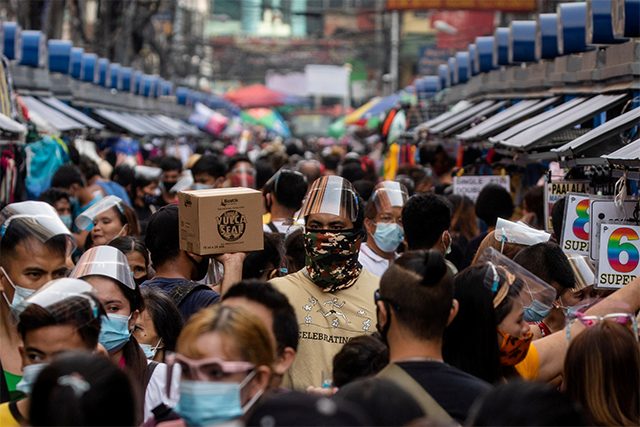
MANILA — Philippine police on Friday threatened to cane people who violate social distancing protocols as the Southeast Asian nation fights the spread of the coronavirus during the festive season.
The Philippines celebrates one of the world’s longest Christmas seasons, starting as early as September, and crowds have started to flock to sprawling malls and shopping centers despite the pandemic.
Police general Cesar Binag, commander of the coronavirus task force, told a news conference that police and soldiers would patrol in public areas in the capital Manila, the hotspot of COVID-19 cases, carrying 1 meter rattan sticks to measure distancing.
“It can be used to cane the hardheaded,” Binag said, adding that the “social distancing patrols” would focus on high-traffic areas such as transport hubs and public markets.
The plan will likely raise eyebrows with human rights advocates who have criticized the government’s militaristic approach to the pandemic.
Authorities have apprehended, warned and penalized around 700,000 people since March for violating measures such as ignoring physical distancing and not wearing masks, police data shows.
President Rodrigo Duterte imposed one of the world’s strictest and longest coronavirus lockdowns in mid-March, grinding the economy to a halt. Restrictions were partially removed in June to allow more businesses to reopen.
For the holidays, the government banned Christmas parties, family reunions and carol singing outside homes, while an earlier plan to allow minors to visit to shopping malls was scrapped.
With more than 436,000 infections and around 8,500 deaths, the Philippines has the second highest COVID-19 cases and casualties in Southeast Asia, next to Indonesia. The Philippines has a population of 108 million. —Reporting by Neil Jerome Morales; Editing by Alison Williams









